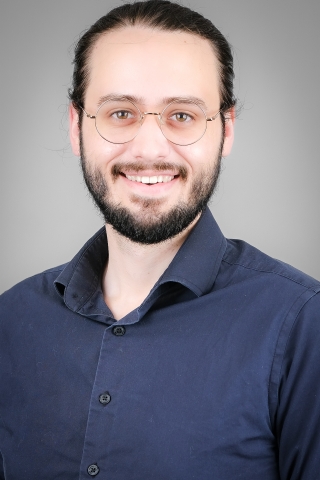As a graduate student studying basic research in cardiac electrophysiology, ARCS Scholar Bram Hunt was in the unique position of being one of three finalists in basic research for the Heart Rhythm Society 2023 Young Investigator Award (YIA) with his paper, “Are Drivers Recurring or Ephemeral? from Serial Mapping of Persistent Atrial Fibrillation.”
The YIA winner is announced at the Heart Rhythm Society conference, the world’s biggest cardiac electrophysiology conference. He was one of over 200 applicants for the award. To be qualified for this prestigious award, one must be an early career researcher working on a problem concerned with cardiac electrophysiology or cardiac pacing and fulfill a list of hefty requirements. As a finalist, Hunt’s research paper was selected for its originality, importance, scientific excellence, and contribution to understanding cardiac electrophysiology and improving patient care.
Hunt started his career in cardiac electrophysiology by studying chemical engineering with a concentration in bioengineering at the University of New Mexico. He is now a PhD student in biomedical engineering at the University of Utah. He chose his research interest because “the heart had electrical and mechanical elements to it, so it plays nicely with my background in microelectromechanical systems”.
Hunt’s finalist paper asks the question of whether drivers stay present in the heart after pulmonary vein isolation surgery. As Hunt explains, drivers are “other sites in the heart that are stable in location but send out bad signals that cause atrial fibrillation (AFib) to occur.” The primary surgical treatment for AFib is pulmonary vein isolation. “They burn the heart tissue in the left atrium around the pulmonary veins to electrically isolate them from the rest of the heart,” says Hunt.
Hunt measures the electrical signals of the heart to find these drivers and employs artificial intelligence tools to help him locate the drivers. Through his research, Hunt found that some drivers disappear, and some stay present, or recurring, in the heart. “This implies that if doctors are performing a driver-based treatment for AFib, they need to make sure they hit these recurring drivers first and foremost. If not, it would have bad implications for the long-term prognosis.”
To be a finalist at the conference was a moment of pride for Hunt, “I enjoyed that I was able to be on the same level as people who already had their doctorates, and my research was cool enough that it could be presented right next to them.” Hunt thanks ARCS for awarding him his Scholar Award, which boosted his confidence, “especially when the type of research I do takes a very long time to get meaningful results,” Hunt explains. He concludes his interview by thanking ARCS once more, “I am beyond grateful for the support of the ARCS Foundation.”
News
Current News
ARCS Scholar Becomes Conference Finalist with Electrifying Results
Posted on Monday, August 7, 2023

